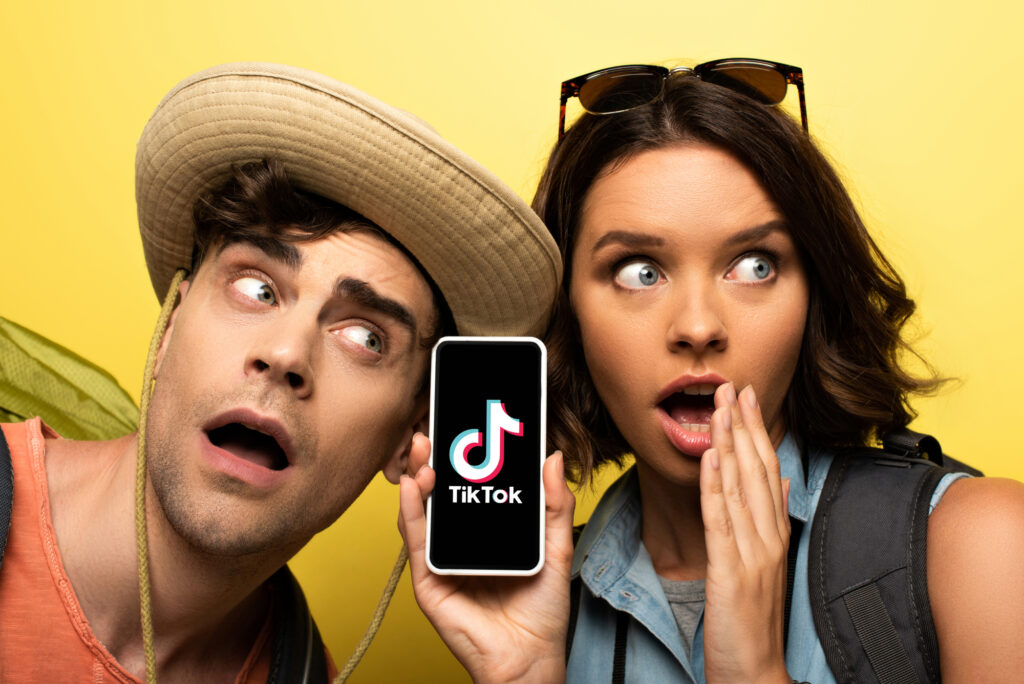TikTok has been in the news a lot lately, especially since its CEO Shou Zi Chew’s contentious testimony before the U.S. House Committee on Energy & Commerce. Americans are responding by asking different questions. Some, presumably including most of those who enjoy, and perhaps even create, TikTok content, ask, “Why are we whipping ourselves into a hysteria to scapegoat TikTok?” Others, many driven by concerns over possible access to TikTok data by the Chinese authorities, but also worried about the potential negative effects of TikTok use, query, “Why can’t we just ban TikTok?”And a lot of them, especially those on the older side, wonder, “What Is TikTok?”
TikTok bans
When discussing existing or possible TikTok bans, we must distinguish between employer-specific prohibitions affecting only the devices issued by the employer in question and a wider ban that would prevent anyone from using the TikTok app in the country. The first type of restriction seems perfectly reasonable, and in fact many such limits are already in place, both in the public and private sectors, both in the United States and in many other countries around the world. And such restrictions are reasonable not just on data security grounds. Employer-issued phones and devices are, generally speaking, work tools, and there are few folks who need to access TikTok for work purposes. If Georgia and Wisconsin state employees who have work phones really want to know what Oriana Colutta has in her bag, they should get their own phone (or ask their kids to show them).
Preventing regular citizens from using TikTok is another matter altogether. Americans should be concerned about the access different parties have to their personal information, but it does not follow that the government needs to, or should, protect them against their own carelessness. A blanket ban by the federal government on TikTok would have serious implications for civil liberties and establish a dangerous precedent. It is against the dangers of emboldening censorious government actors that the risks posed by TikTok must be weighed.
Just how much of a threat TikTok presents is an open question, which we won’t delve into here. But let’s, for the sake of argument, assume that the Chinese authorities do have, or could obtain, access to information collected by TikTok on its American users. The risk of that happening should certainly give everyone some pause, but then again the kind of information on Americans held by TikTok records is already, and probably more readily, available to Chinese authorities from other sources.
Take Americans who fly on Chinese carriers, either to China or to another country changing planes in China. Those carriers obtain Americans’ passport and credit card details before issuing a ticket. Does anyone think that, say, Air China would not, if ordered to by the CCP, hand over that information to a Chinese security agency? The same goes for Americans who place orders from Chinese manufacturers via Alibaba or who buy directly from Chinese sites. Indeed, it is quite likely the CCP already has ready access to this information without having to order anyone to give it to them, or even ask.
One could argue that the examples above involve Americans who willingly chose to engage with Chinese entities, such as Air China. Yet by now most Americans who know about TikTok also know about its ties to China. It’s hard to argue that the voluntary use of TikTok is any different from buying an Air China ticket, placing an order for shoes from a factory in Fujian, or buying from a Chinese-owned website. No one forces the Americans in question to engage in any of these interactions, including TikTok use.
Lack of reciprocity
The real issue with TikTok is the lack of reciprocity that allows it to be freely used in the United States, while some of the most popular American social media apps and websites are not legally or freely accessible in China. Reciprocity should be one of the bedrocks of international relations, but it is often missing from the equation when it comes to China. What happens with TikTok is but one of many examples. It seems that the real question Americans should be asking is, if Google, Facebook and the New York Times cannot be freely accessed in China, why should TikTok be available in the United States? Seems unfair. Convince us otherwise.

























